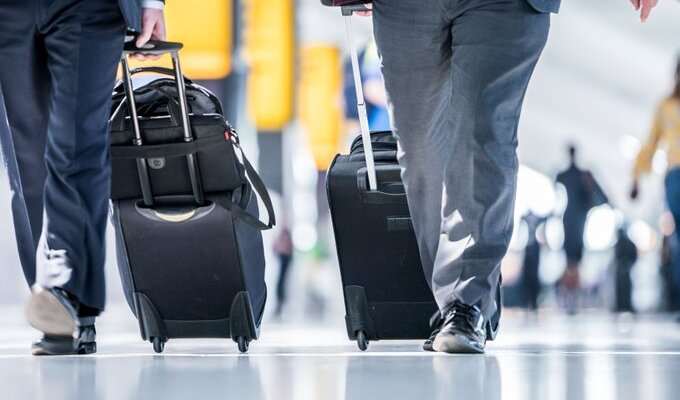Trends shaping the travel sector in 2022

Travel has had to adapt to a revolving door of changes the past two years, with restrictions coming and going unexpectedly and sometimes quite suddenly. It’s reshaped the future of how we travel. So, as the appetite for travel begins to rise, what will it look like in 2022?
Recent behavior changes suggest that people are looking for a new way to travel whereby accommodation is spacious and safe, while offering flexibility and leisure options close by. But what will travelers want as borders reopen? And if travel is changing for good, how will the industry respond?
Here’s my take on the top three trends shaping the travel industry in 2022 and beyond:
Three trends for travel in 2022
1. Remote working and flexible living. The sudden need for a more flexible way of working has shifted our attitudes to how we live. Many have realised the benefits of working from wherever they choose, such as traveling and working, leading to the rise of the digital nomad.
As the lines blur between business and leisure, vacation rentals will continue to be the preferred accommodation type. Short-term rentals are able to offer travelers private spaces and safety guidelines against Covid, which Google says the majority of Americans will expect in future travel .
2. How tech plays a role in travel. To keep up with the demand of the above trend, tech developments have supported hospitality managers in making their properties more efficient. Rentals and hotels alike now have access to smart home tech, giving guests a
great experience and meeting their changed expectations.
Recent events forced the hospitality industry to advance by providing contactless solutions and this growth in tech-enabled safe travel is likely to continue. Investors are looking for the next innovative tech, and have already invested billions into vacation startups globally. We predict this growth and investment in hospitality tech will continue to increase in the coming year. Start-up, Pacaso, who enables part ownership of SmartStay second homes, received $75 million earlier this year.
3. A new type of business travel. Companies have also experienced the perks of remote working, by cutting back on office rental costs and hiring more qualified staff globally. Trust has been established, with a study showing staff are more productive and less likely to take sick days when working remotely.
The value of meeting face-to-face has not been forgotten and so we’ll likely see a rise in corporate travel as companies gather their staff for periodical get togethers (perhaps once a quarter instead of weekly team meets). Research predicts that there will be a growth of 38% year-over-year in business travel in 2022.
This new type of corporate travel will contribute to the growth of domestic travel, which has been dominating the market. We expect international travel to return at the end of 2022, as borders reopen and people grow more confident moving around.
Travel industry reactions to changing demand
The travel industry has evolved around the changing times, with property managers increasing their tech stack and technology developers creating new innovative ways to make stays more accessible and efficient.
We’ll continue to see more smart home tech in rentals, and hotels wanting to take advantage of this market will begin to integrate these SaaS solutions into their operations as well. Short-term rental property managers will be able to professionalize their businesses further by capitalizing on guest screening solutions to weed out bad guests and protect owners’ homes. If
property managers continue to demonstrate to owners that they can keep properties safe and guests happy then they will grow their inventories to meet the increased booking demand.
More hotels will invest in redeveloping to add short-term rental-like amenities, such as kitchen facilities and larger living spaces. Travelers have had a taste of the comfort and convenience that comes with short-term rental properties and likely won’t want to go back. Marriott Hotels has already ventured into this area with great success and we predict many others will follow as
demand sustains into next year and beyond.
Andrew Bate is co-founder and CEO of Safely, the leading insurtech and guest screening solution for the vacation and short-term rental market. Since its launch in 2015 over $50 billion of homeowner liability has been covered.
